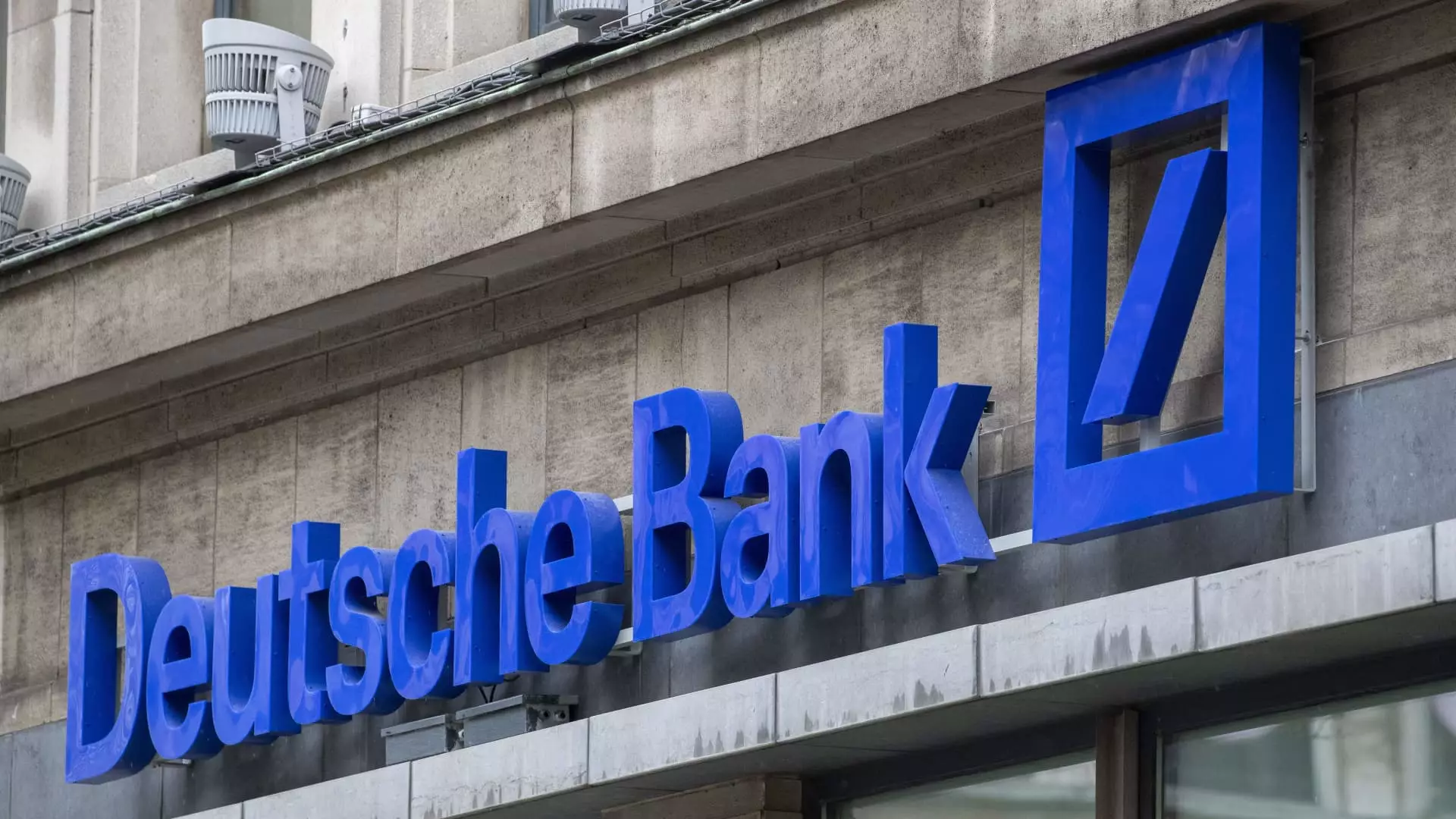Deutsche Bank’s latest financial report offers an invigorating, yet cautiously optimistic, perspective amid a landscape fraught with uncertainty. Despite mixed results within its core investment banking operations, the bank managed to surpass expectations on the bottom line, signaling both resilience and strategic adaptability. The second-quarter net profit of €1.485 billion, a notable turnaround from a €143 million loss a year prior, underscores Deutsche Bank’s capacity to rebound from past struggles. However, beneath this encouraging headline lies a complex picture that invites critical analysis.
Financially, the bank demonstrated strength with revenues aligning closely with analyst predictions and a significant increase in profit before tax, rising 34% year-on-year to €2.4 billion. Yet, success was uneven across its divisions. The investment banking unit, often viewed as the heartbeat of revenue generation, posted only a modest 3% uptick, with particular pain points in corporate advisory and debt origination. This suggests that while Deutsche Bank is on the right path, its growth remains fragile and susceptible to external market fluctuations. The sizable contribution of fixed income and currency trading, driven by volatility and client activity, hints at an over-reliance on short-term market conditions, which could be a double-edged sword for sustained profitability.
Market Dynamics and Strategic Shifts: Navigating Headwinds
The bank’s strategic posture appears to be cautiously optimistic, particularly as macroeconomic factors shape the European financial environment. The strengthening euro against the dollar proved a mixed blessing—enhancing certain revenue streams but also complicating the bank’s international operations and profitability metrics. Deutsche Bank’s management remains committed to meeting its 2025 targets, but this promise is contingent upon navigating Europe’s challenging monetary landscape.
In an environment characterized by low interest rates, the bank is adjusting its long-term outlook to reinforce its core strengths. The reduction of the European Central Bank’s interest rate to 2%, along with indications of prolonged accommodative monetary policy, signifies a tougher terrain for traditional banking margin expansion. Yet, Deutsche Bank’s assertive move into Europe’s defense sector underscores a strategic pivot to areas with promising growth potential, highlighting a belief in the value of targeted, sector-specific opportunities amid broader macroeconomic stagnation.
The European defense spending surge, driven by geopolitical tensions, offers a compelling case for a center-right banking approach: promoting responsible investment in areas aligned with national interests without succumbing to populist overreach. Christian Sewing’s acknowledgment of underinvestment on the European front resonates with a core conservative principle—wise stewardship and strategic resource allocation—asserting that Deutschland’s financial institutions must play a pivotal role in supporting vital national priorities.
Political and Economic Risks: An Uncertain Path Forward
German political stability, after recent upheavals and elections, provides some relief—yet the economic outlook remains clouded. The looming trade dispute with the United States, centered around potential tariffs, could strike a blow to Germany’s already fragile export-driven economy. Bundesbank’s Joachim Nagel’s warning of a possible recession in 2025 if tariffs materialize highlights the perilous positional landscape European banks face.
For Deutsche Bank, these external risks necessitate a careful balancing act—pursuing growth and profitability without overexposing to volatile geopolitical frontiers. A center-right liberal stance would advocate for prudent engagement: supporting defense and infrastructure investment as essential buffers, all while advocating for fair trade policies that protect European interests without resorting to protectionism. Deutsche Bank’s cautious optimism, underpinned by targeted sector investments and a resilient capital position, reflects a strategic alignment with long-term national success rather than short-term gains.
A Perspective Shift: From Uncertainty to Opportunities
While headlines may emphasize the challenges—the compression of investment banking revenues, geopolitical tensions, and uncertain macroeconomic conditions—the real story lies in Deutsche Bank’s strategic agility. It represents a broader trend among European lenders: cautious, yet ambitious, positioning themselves to benefit from a future where stability and strategic sector growth can provide a counterbalance to market turbulence.
In this context, Deutsche Bank’s incorporation of defense-sector financing and its emphasis on capital strength signal a calculated, yet optimistic, stance. It demonstrates that a mid-sized, European bank, guided by pragmatic governance and strategic sector focus, can carve out opportunities in a world of geopolitical uncertainties and economic headwinds. Yes, the environment remains challenging, but Deutsche Bank’s recent performance suggests it is capable of weathering storms—if not beautifully, then at least resiliently—and positioning itself as a responsible player in Europe’s economic revival.

